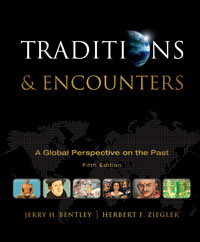1 A) seek converts. B) appeal his case. C) apply for Roman citizenship. D) seek his fortune. E) None of these answers is correct. 2 A) Remus. B) a she-wolf. C) Aeneas. D) Romulus. E) None of these answers is correct. 3 A) city-states. B) a republican government. C) powerful kings. D) two consuls. E) tribunes. 4 A) patricians. B) plebeians. C) democratic leaders. D) merchants. E) priests. 5 A) Britain. B) Greece. C) Egypt. D) Sicily. E) Carthage. 6 A) owners of latifundia . B) reformers. C) powerful generals. D) emperors. E) None of these answers is correct. 7 A) Gaius Marius B) the Gracchi brothers C) Lucius Cornelius Sulla D) Julius Caesar E) Mark Antony 8 A) He started large-scale building projects. B) He centralized the military under his control. C) He named himself dictator for life. D) He distributed property to the veterans of his armies. E) All these answers are correct. 9 A) a republic disguised as a monarchy. B) a monarchy disguised as a republic. C) an oligarchy disguised as democracy. D) a democracy disguised as an empire. E) an empire disguised as a democracy. 10 A) Juvenal B) Cicero C) Livy D) Tacitus E) None of these answers is correct. 11 A) a defendant was assumed innocent until proven guilty. B) defendants had a right to challenge their accusers before a judge. C) the judge enjoyed great discretion in applying laws. D) judges could set aside laws. E) All these answers are correct. 12 A) public baths, swimming pools, and gymnasia B) the Pantheon's dome C) statues, monumental arches, temples, and aqueducts D) public beaches on the Mediterranean E) chariot races in the Circus Maximus 13 A) It meant an entire household, including slaves, servants, and relatives. B) It included the pater familias , who was the authority. C) Women supervised the domestic affairs. D) Children could be sold into slavery. E) All these answers are correct. 14 A) They were often chained together to work on latifundia . B) In cities, they were often freed when they reached thirty years of age. C) They had the right to elect their own tribunes. D) Female slaves usually worked as domestic servants. E) Some slaves were highly educated. 15 A) Islam B) the cult of Cybele C) Stoicism D) the cult of Isis E) Judaism 16 A) soldiers. B) women. C) slaves. D) the wealthy. E) intellectuals. 17 A) they declined to pay taxes. B) they did not respect any secular authorities. C) they had difficulty recognizing emperors as divine. D) they were converting to Mithraism. E) All these answers are correct. 18 A) were an early Christian sect. B) were a sect of Mithraism. C) is another term for the Dead Sea scrolls. D) looked for their own savior. E) None of these answers is correct. 19 A) "the anointed one." B) "the son of God." C) "the enlightened one." D) "the one who sacrifices." E) None of these answers is correct. 20 A) Roman emperors. B) high-ranking officials and the wealthy elite. C) Roman soldiers and military officers. D) the lower classes, urban populations, and women. E) All these answers are correct.





